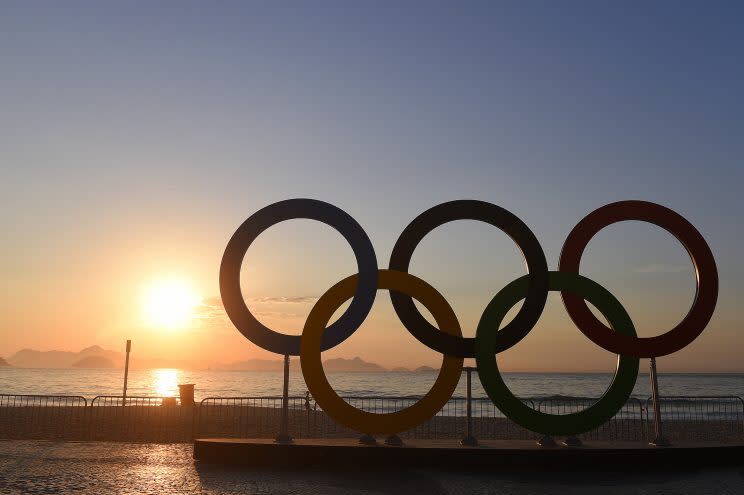Latest obstacle to Paralympic movement: Budget cuts

Medal count | Olympic schedule | Olympic news
RIO DE JANEIRO – The name is for a reason.
“The word ‘Paralympic,’” declares the official website, “derives from the Greek preposition ‘para’ (beside or alongside) and the word ‘Olympic.’ Its meaning is that Paralympics are the parallel Games to the Olympics and illustrates how the two movements exist side-by-side.”
It should always be that way. It may not be that way this time.
The International Paralympic Committee announced Friday that 10 or more nations may not be able to send representatives to the Games in September because of a budget shortfall. There also will be cuts to venues, workforce, and transportation.
“Never before in the 56-year history of the Paralympic Games have we faced circumstances like this,” IPC president Sir Philip Craven said.
How did this happen? Poor ticket sales and Brazil’s struggling economy. There is a scramble now to secure funding from the government and state sponsors. But the travel grants already may have come in too late for some athletes. (A spokesperson for the IPC declined to name the nations that may be unable to send delegations; a USOC spokesperson said the U.S. team is not affected.) So four years or more of training might not even be rewarded with a chance to compete.
It should never have come to this if there is a true commitment to “parallel” Olympics. No, the Paralympics don’t get the immense viewership that the Olympics do, nor the huge sponsorship, but there always should be enough support for the disabled. Many athletes have served their countries long before representing them in the sporting arena.
Part of the problem is that the downturn in the Brazil economy was impossible to foresee when the Games were awarded in 2009. The public pressure on possible sponsors to come through could be helpful here.
Still, this shouldn’t have happened so close to the Games. And the worst may be yet to come. Resources are crucial for any sporting event but especially those involving Paralympic athletes. The British Paralympic Association called the news “worrying given the obviously constrained budgets and significant reductions in service levels.”
This is well beyond a logistical issue. Paralympic athletes fight for respect and equality every single hour of every day. Their accomplishments in real life are often more inspiring than the achievements of the best Olympic athletes. Jessica Long was adopted from a Russian orphanage and competed on the U.S. Paralympic team at age 12. She has 17 medals already. Cyclist Shawn Morelli was hit by an IED in Afghanistan and suffered nerve damage, brain trauma and partial blindness. She’s working on a Ph.D. and still is training to come to Rio. Then there’s Tatyana McFadden, who is the first athlete to win four major marathons in one year (2013): London, New York, Boston, and Chicago. She will be competing in seven events in Rio.
To its credit, the U.S. has made an extra effort to promote and support its Paralympic athletes. (And NBC is broadcasting 70 hours of the Games.) But the push for a level playing field is global, and the smaller nations often are the ones that need athletes to have this stage most. It’s a disservice to the whole movement if they can’t get here, and if they can’t compete without distraction.
“These cuts are on top of the ones we, together with the IOC, have already made in the last 12 months,” Craven said, “and are likely to impact nearly every stakeholder attending the Games.”
It’s not just the stakeholders attending the Games that matter. It’s the stakeholders who are confronting their disabilities, overcoming them, changing them into strengths. It’s the rest of us, too, who know them, care about them, and are inspired by them.
The Paralympics aren’t the other Olympics. In a true sense, they are the real Olympics. They should be funded as such.



